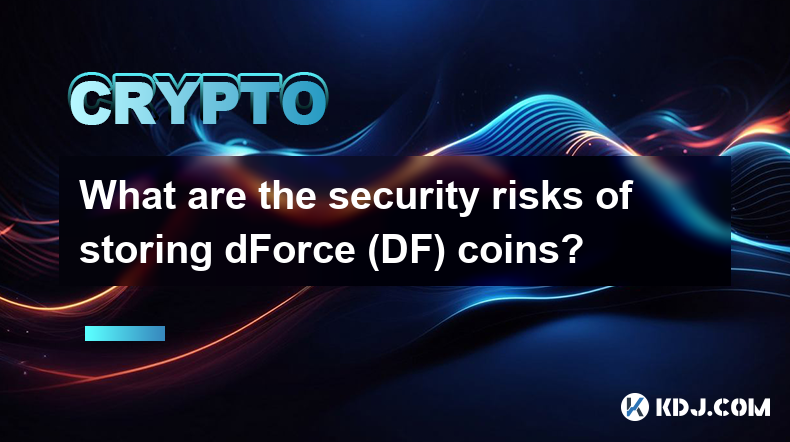-
 Bitcoin
Bitcoin $108,338.0981
-0.13% -
 Ethereum
Ethereum $2,566.4077
1.16% -
 Tether USDt
Tether USDt $1.0001
-0.01% -
 XRP
XRP $2.2841
-2.59% -
 BNB
BNB $658.5241
-0.17% -
 Solana
Solana $150.3819
-1.08% -
 USDC
USDC $0.9999
-0.01% -
 TRON
TRON $0.2864
-0.24% -
 Dogecoin
Dogecoin $0.1694
0.24% -
 Cardano
Cardano $0.5813
-0.72% -
 Hyperliquid
Hyperliquid $37.8292
-4.60% -
 Bitcoin Cash
Bitcoin Cash $503.3593
1.69% -
 Sui
Sui $2.8784
-0.69% -
 Chainlink
Chainlink $13.4784
-0.43% -
 UNUS SED LEO
UNUS SED LEO $9.0793
-0.27% -
 Stellar
Stellar $0.2537
-0.41% -
 Avalanche
Avalanche $18.0047
-0.23% -
 Shiba Inu
Shiba Inu $0.0...01181
1.56% -
 Hedera
Hedera $0.1608
0.49% -
 Toncoin
Toncoin $2.7568
-0.93% -
 Litecoin
Litecoin $86.4121
-0.20% -
 Monero
Monero $313.7273
-0.86% -
 Polkadot
Polkadot $3.3715
-0.66% -
 Dai
Dai $1.0001
0.01% -
 Ethena USDe
Ethena USDe $1.0004
0.03% -
 Bitget Token
Bitget Token $4.2902
-0.54% -
 Uniswap
Uniswap $7.5361
2.73% -
 Aave
Aave $285.6090
-0.55% -
 Pepe
Pepe $0.0...09958
0.28% -
 Pi
Pi $0.4560
-0.65%
What are the security risks of storing dForce (DF) coins?
2025/01/06 15:50

Key Points:
- Understanding the nature of dForce (DF) coins and their storage options
- Assessing vulnerabilities associated with different storage methods
- Identifying best practices for mitigating security risks
Security Risks of Storing dForce (DF) Coins
1. Loss or Theft from Centralized Exchanges
- Centralized exchanges hold user funds in custodial wallets, making them a target for hackers
- If an exchange is compromised, users may lose their DF coins permanently
- Weak password protection or account vulnerabilities can allow unauthorized access
- Consider using hardware wallets or decentralized exchanges for more secure storage
2. Private Key Compromise
- Private keys are essential for accessing and spending DF coins
- If your private key is compromised, your funds are at risk
- Store private keys securely offline, such as on a hardware wallet or paper backup
- Avoid storing private keys on connected devices or online accounts
3. Malicious Smart Contracts
- Smart contracts can be coded with vulnerabilities that allow hackers to steal funds
- DF coins may be vulnerable to exploits if they interact with malicious smart contracts
- Exercise caution when interacting with unfamiliar contracts, especially those requiring approval of large transactions
4. Phishing and Scams
- Phishing emails or malicious websites may trick users into providing their private keys
- Scammers impersonate legitimate services or exchanges to gain access to funds
- Be vigilant about suspicious emails, website addresses, and requests for sensitive information
5. Hardware Wallet Vulnerabilities
- While hardware wallets offer improved security, they are not immune to vulnerabilities
- Malicious firmware updates or physical tampering can compromise hardware wallets
- Always purchase hardware wallets from reputable manufacturers and keep firmware up to date
Best Practices for Security
- Use a hardware wallet. Hardware wallets store private keys offline, providing the highest level of security.
- Implement 2-factor authentication. Enable 2FA on centralized exchanges and other accounts to prevent unauthorized access.
- Only interact with trusted smart contracts. Research smart contracts thoroughly before interacting with them.
- Be wary of phishing scams. Never share your private key or sensitive information with anyone.
- Keep your software up to date. Security patches and updates address vulnerabilities.
FAQs
1. What is the most secure way to store dForce (DF) coins?
- The most secure way to store dForce (DF) coins is to use a hardware wallet. Hardware wallets keep your private keys offline, making them less vulnerable to hacks.
2. Can I store dForce (DF) coins on a centralized exchange?
- Yes, you can store dForce (DF) coins on a centralized exchange, but it is not as secure as using a hardware wallet. Centralized exchanges hold your private keys, making them a target for hackers.
3. What are the risks of storing dForce (DF) coins on a hardware wallet?
There are some risks associated with storing dForce (DF) coins on a hardware wallet, such as:
- Physical theft: Your hardware wallet could be lost or stolen.
- Device failure: Your hardware wallet could malfunction.
- Malware: Your hardware wallet could be infected with malware that could steal your private keys.
4. How can I protect my dForce (DF) coins from hackers?
There are a few things you can do to protect your dForce (DF) coins from hackers, such as:
- Use a strong password. Use a strong password that is at least 12 characters long and contains a mix of upper and lowercase letters, numbers, and symbols.
- Enable two-factor authentication. Two-factor authentication adds an extra layer of security to your account by requiring you to enter a code from your mobile phone when you log in.
- Be careful about clicking on links in emails or on websites. Phishing scams often use emails or websites that look legitimate to trick you into giving up your private keys.
免責聲明:info@kdj.com
所提供的資訊並非交易建議。 kDJ.com對任何基於本文提供的資訊進行的投資不承擔任何責任。加密貨幣波動性較大,建議您充分研究後謹慎投資!
如果您認為本網站使用的內容侵犯了您的版權,請立即聯絡我們(info@kdj.com),我們將及時刪除。
- 繫繩的淘金熱:80億美元的瑞士拱頂和Stablecoins的未來
- 2025-07-09 02:50:13
- Cardano價格:鯨魚的積累暗示ADA的未來?
- 2025-07-09 03:30:12
- BlockDag,Defi和Crypto Raffles:下一件大事?
- 2025-07-09 03:35:12
- 馬s,地幔和Stablecoin實用程序:加密付款的新時代?
- 2025-07-09 02:50:13
- 原子看漲突破:加密情緒和宇宙生態系統
- 2025-07-09 02:55:12
- Kraken,後機翼和Memecoins:狂野前往新加坡大獎賽!
- 2025-07-09 00:50:12
相關知識

How to customize USDT TRC20 mining fees? Flexible adjustment tutorial
2025-06-13 01:42:24
<h3>Understanding USDT TRC20 Mining Fees</h3><p>Mining fees on the TRON (TRC20) network are essential for processing transactions. U...

USDT TRC20 transaction is stuck? Solution summary
2025-06-14 23:15:05
<h3>Understanding USDT TRC20 Transactions</h3><p>When users mention that a USDT TRC20 transaction is stuck, they typically refer to ...

How to cancel USDT TRC20 unconfirmed transactions? Operation guide
2025-06-13 23:01:04
<h3>Understanding USDT TRC20 Unconfirmed Transactions</h3><p>When dealing with USDT TRC20 transactions, it’s crucial to understand w...

How to check USDT TRC20 balance? Introduction to multiple query methods
2025-06-21 02:42:53
<h3>Understanding USDT TRC20 and Its Importance</h3><p>USDT (Tether) is one of the most widely used stablecoins in the cryptocurrenc...

What to do if USDT TRC20 transfers are congested? Speed up trading skills
2025-06-13 09:56:41
<h3>Understanding USDT TRC20 Transfer Congestion</h3><p>When transferring USDT TRC20, users may occasionally experience delays or co...

The relationship between USDT TRC20 and TRON chain: technical background analysis
2025-06-12 13:28:48
<h3>What is USDT TRC20?</h3><p>USDT TRC20 refers to the Tether (USDT) token issued on the TRON blockchain using the TRC-20 standard....

How to customize USDT TRC20 mining fees? Flexible adjustment tutorial
2025-06-13 01:42:24
<h3>Understanding USDT TRC20 Mining Fees</h3><p>Mining fees on the TRON (TRC20) network are essential for processing transactions. U...

USDT TRC20 transaction is stuck? Solution summary
2025-06-14 23:15:05
<h3>Understanding USDT TRC20 Transactions</h3><p>When users mention that a USDT TRC20 transaction is stuck, they typically refer to ...

How to cancel USDT TRC20 unconfirmed transactions? Operation guide
2025-06-13 23:01:04
<h3>Understanding USDT TRC20 Unconfirmed Transactions</h3><p>When dealing with USDT TRC20 transactions, it’s crucial to understand w...

How to check USDT TRC20 balance? Introduction to multiple query methods
2025-06-21 02:42:53
<h3>Understanding USDT TRC20 and Its Importance</h3><p>USDT (Tether) is one of the most widely used stablecoins in the cryptocurrenc...

What to do if USDT TRC20 transfers are congested? Speed up trading skills
2025-06-13 09:56:41
<h3>Understanding USDT TRC20 Transfer Congestion</h3><p>When transferring USDT TRC20, users may occasionally experience delays or co...

The relationship between USDT TRC20 and TRON chain: technical background analysis
2025-06-12 13:28:48
<h3>What is USDT TRC20?</h3><p>USDT TRC20 refers to the Tether (USDT) token issued on the TRON blockchain using the TRC-20 standard....
看所有文章

























































































